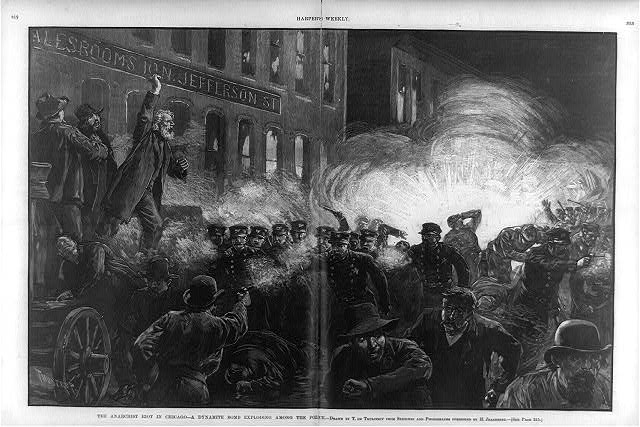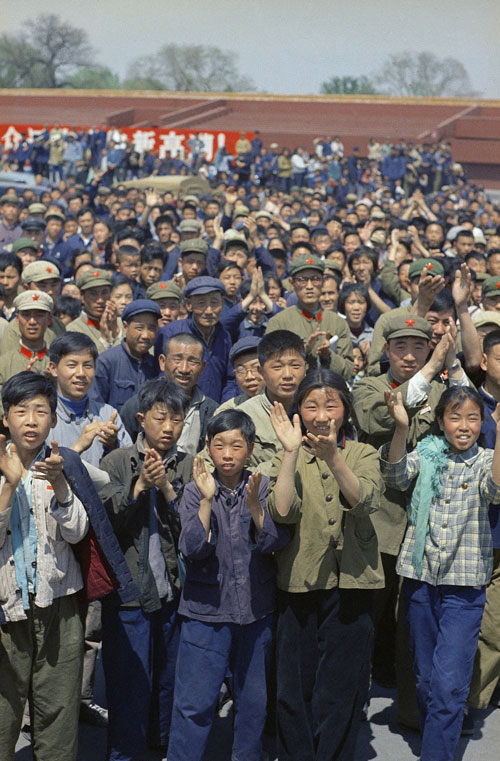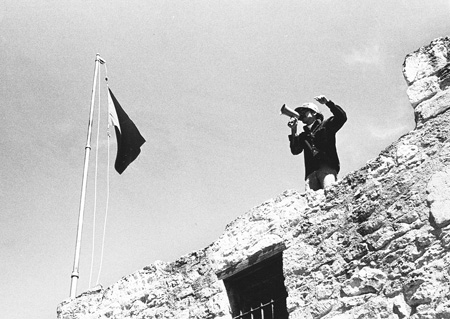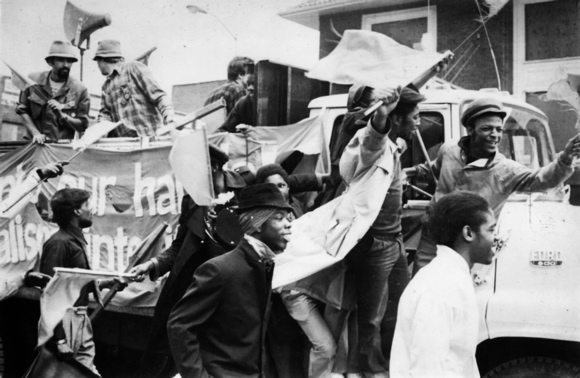May 1st: Revolution and Internationalism
May 1, 2013 | Revolution Newspaper | revcom.us
For thousands of years human society has been dominated by oppressive ruling classes. Forms of exploitation have changed, but the rulers and their ideologues have always preached that such a division between slavemasters—in one form or another—and slaves was the natural order of things.
In 1848, Karl Marx and Frederick Engels exposed the real workings of society—that class society is not eternal—that the class of oppressed workers, the proletariat, has as its historic mission to overthrow all exploitation and oppression in every form. The communist movement, built on a scientific understanding, was born.
It was from the struggle of that class—in particular the battle for an eight-hour day instead of the “sunrise to sunset” workday—that May 1st emerged as a holiday of revolutionary struggle in 1886. Ever since, May 1st has been marked by revolutionary struggle.

On May 1st, 1886, tens of thousands of workers struck in Chicago for the eight-hour day and authorities retaliated violently, killing several workers in the days following. A clash at Haymarket Square on May 4 resulted in deaths of police and workers, and four radical workers were executed by hanging.
With the revolutionary seizure of power by the proletariat in the Soviet Union in 1917, and later in the People’s Republic of China, the first stage of the world communist revolution posed a powerful and inspiring alternative to capitalism. And on May 1st, millions in those socialist societies, and workers and oppressed people in every country, raised the red flag of revolution and took to the streets.
On the basis of the remaining strength of capitalism in the new socialist societies, and the strength of capitalism-imperialism worldwide, capitalists within the leading party in the Soviet Union in the mid-’50s and in China after the death of Mao in 1976 seized power and the first stage of communist revolution ended.

The Cultural Revolution in China drew hundreds of millions into the struggle to move beyond classes and exploitation. Above: Tienanmen Square, May Day 1967. Photo: AP
Today, a new stage of communist revolution, based on the new synthesis of communism brought forward by Bob Avakian, is fighting to be born. The Revolutionary Communist Party, USA re-established revolutionary May 1st in the U.S. in 1980, with marches and rallies around the country. In building for these marches, comrade Damián García raised the red flag over the Alamo in Texas—a symbol of U.S. domination of Mexico and the theft of much of that country. Shortly after, Damián was assassinated by police agents in Los Angeles while building for May Day. Revolutionary May 1st 1980 and the campaign to build it around the country made communist revolution a mass question broadly in society—in a way that had not happened in the U.S. in decades, if ever.
Internationalism has been a hallmark of the communist revolution, and a stronger understanding of this, and emphasis on this, is an important part of the new synthesis of communism: The Whole World Comes First!

Damián García at the Alamo, March 20, 1980. He was murdered by police agents on April 22, 1980.
The achievement of [the necessary conditions for communism] must take place on a world scale, through a long and tortuous process of revolutionary transformation in which there will be uneven development, the seizure of power in different countries at different times, and a complex dialectical interplay between the revolutionary struggles and the revolutionization of society in these different countries...[a dialectical relation] in which the world arena is fundamentally and ultimately decisive while the mutually interacting and mutually supporting struggles of the proletarians in different countries constitute the key link in fundamentally changing the world as a whole.
BAsics 2:12
If you like this article, subscribe, donate to and sustain Revolution newspaper.

